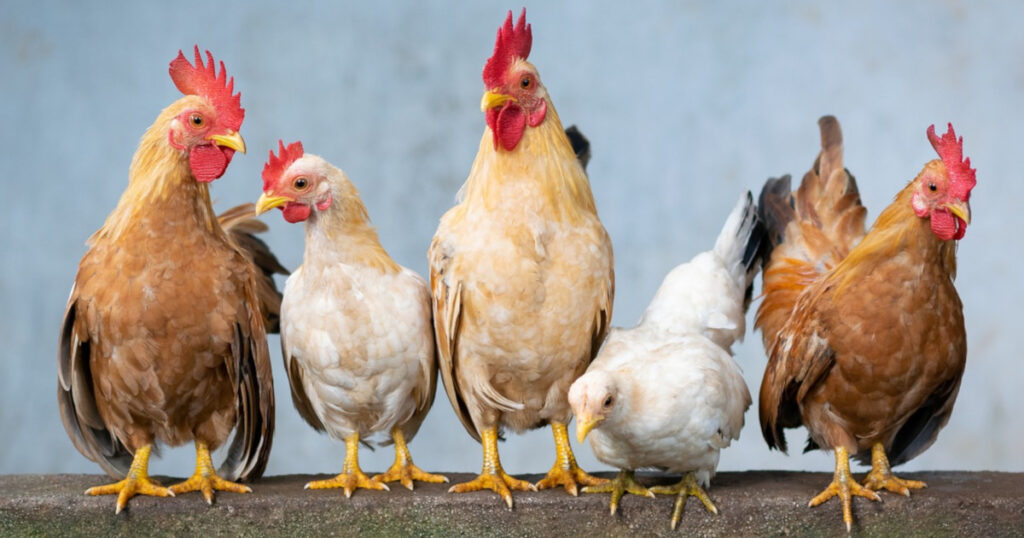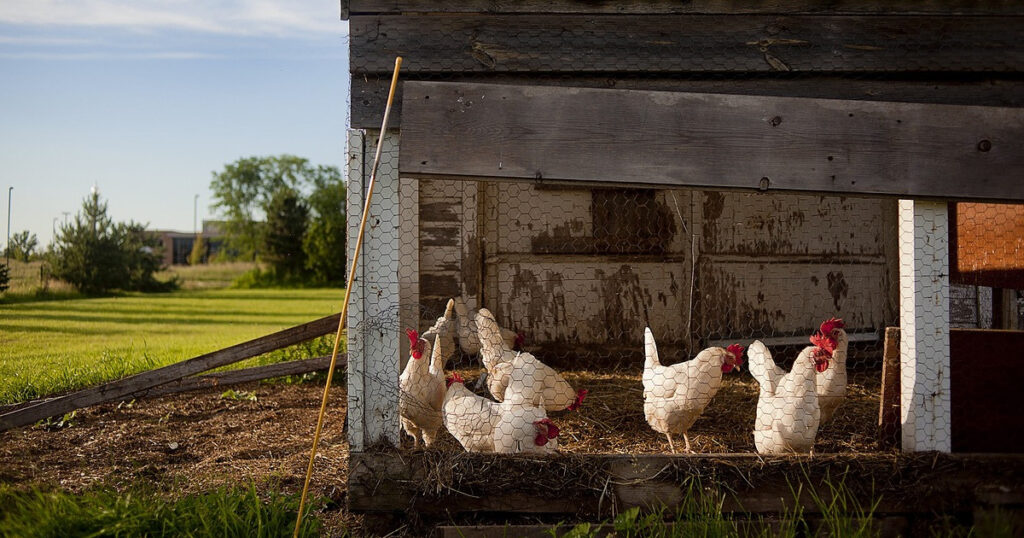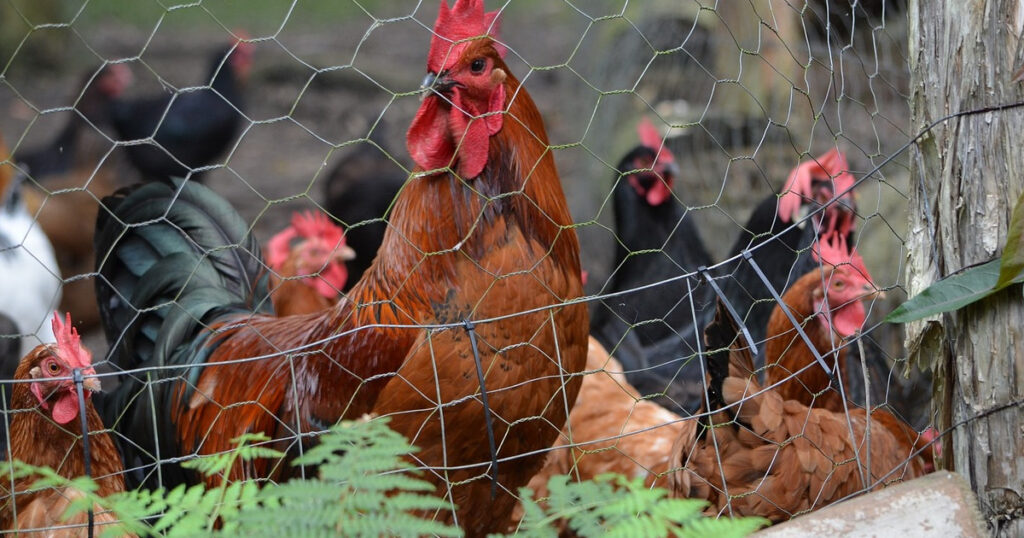Snakes are a common sight around most of the world. Only a few places worldwide (like Ireland and New Zealand) don’t have any wild populations of snakes. In warmer climates, they can be seen warming up in the sun or during the dawn or dusk periods hunting for their prey.
Snakes are often in areas where livestock, like chickens, cows and sheep can be found. And this often puts them in conflict with humans. The milk snake (Lampropeltis Triangulum) got its name because early US settlers believed they were drinking the cows’ milk. It is now common knowledge that snakes live in these areas because livestock attracts rodents.
Learning how to keep snakes out of chicken coop areas is an important skill to learn.
Do Snakes Eat Chickens?

Snakes’ preferred prey is rodents. They are the perfect shape to be eaten and are very nutritious for the snake, especially rats. However, that doesn’t mean that eggs and small birds aren’t at risk. Some species of snakes are known to eat chicken eggs and chicks.
However, do snakes eat chickens when full size? Not many species are often that large, but some species, like Copperheads (Agkistrodon) and Cottonmouth (Agkistrodon Piscivorus) are more likely to eat an adult chicken. Although it is important to note that the chicken coop is an unlikely location for the Cottonmouth being more aquatic.
The main reason why a snake is likely to be near or in a chicken coop is that the dark, warm and humid location is the perfect environment for most snakes. The humid location is almost perfect for those who are looking to shed soon, which happens every one to three months.
But the most common reason for a snake in chicken coops and exercise areas is that there are rodents nearby.
Do Chickens Eat Snakes?
While most snake species won’t eat chickens, for the most part, the same cannot be said for chickens. Chickens are omnivores and are known to attack and eat a wide range of prey items. They may attack and eat smaller snakes like young corn snakes (Pantherophis Guttatus) or Garter Snakes (Thamnophis).
Chickens will attack any snake that it will perceive as a threat which can leave an unpleasant mess and be more dangerous to your chickens than the threat of a live snake. One bite from a snake will use up its venom and it will need time to replenish the venom. So only one chicken could be harmed. However, if a group of chickens attacks and eats a snake, several could digest the venom and that can be lethal, especially from a copperhead.
The Biggest Threat of Snakes in Chicken Coop Areas

One of the biggest issues for snakes in the chicken coop is their proximity to humans. Most species of snakes are not venomous and are relatively harmless to humans. However, snakes are experts in hiding and some can be right next to you without you knowing about it.
Snakes generally prefer to run away when facing a threat, like a human. The problem is a chicken coop might not have that many escape routes and a cornered snake, whether intentional or not, is more likely to bite. While most will offer just a short sharp pain, like a pinprick, some can cause small cuts and swelling.
Other snakes are venomous and being bitten by one of these will need hospital treatment.
How to Keep Snakes out of Your Chicken Coop
One of the best moves is to learn how to keep snakes out of your chicken coop. There are several ways you can do this, but it is important to remember to try methods that won’t harm the snake. In many counties and states, it is illegal to harm a snake unless the snake is a danger to life.
And snakes can play an important role in the ecology of an area. Snakes are excellent natural controls against rodent infestations. A couple of snakes can devastate a population of rats in a given range.
Therefore, if you have a snake in the chicken coop and exercise areas, consider the options listed below.
1. Snake Proof Chicken Wire

One of the first options often considered is snake-proof chicken wire. The problem with this is that snakes are very agile and only need a small gap to squeeze through. Some snake-proof wires can keep larger snakes out, but smaller ones might still gain access.
So while snake-proof chicken wire is available, it is better to use other options like cloth and netting with smaller gaps.
2. Snake Removers
There are plenty of online groups that are dedicated to the removal of snakes in local areas. Some of these groups advertise free services and can come quickly. However, this is often a solution, not a preventative option, but it is something to consider.
3. Keep an Area Clean
Limit the amount of chicken food spillage and do regular chicken egg collection to reduce the food available for the snake and rodents. Therefore, there is less reason for the snake to be in your chicken coop.
4. Snake Repellers
A snake repellent safe for chickens is one of the best options. Snake repellers are a powerful option that can be run on batteries or through solar power. Snakes don’t have external ears, only internal ears that pick-up vibrations. These devices emit a vibration similar to a large predator, and so the snakes move away. Several of these emitters will ward snakes off from a wide area.
Naturally, plants such as basil and marigold can be used as repellers too!
5. Remove Nearby Homes
Another idea is to remove nearby homes that might be useful for snakes (and rodents). Log piles and abandoned buildings are excellent hiding places for snakes, so they should be moved or destroyed.
Final Word: How to Keep Snakes Out of Chicken Coop and Exercise Areas
Snakes in a chicken coop is not a great idea. Snakes and chickens pose a risk to each other. But you don’t want to use toxins, traps, or other harmful options to hurt the snakes. That is why snake repellents and eliminating access or reasons to access the snake are the best option. The Snake Repellers are ideal because it can cover more than 130-feet diameter spaces to prevent snakes from using chicken coops as a feeding station or a place to hide.